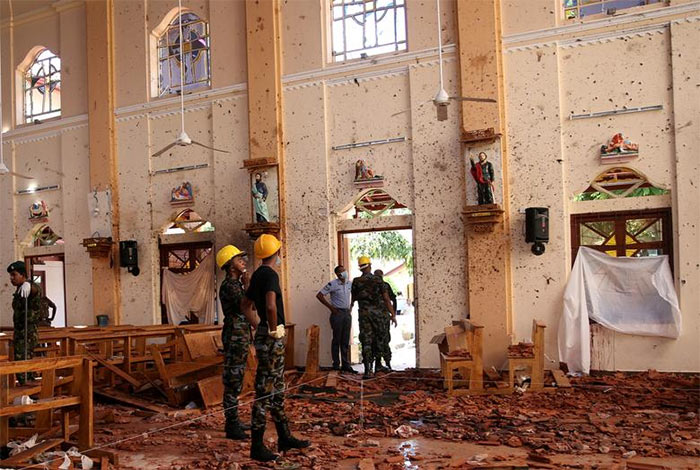IS members formerly active in Syria, Iraq behind Sri Lanka blasts – Russian Security Council

The Sri Lanka terrorist attacks were organized by the militants of the Islamic State formerly active in Syria and Iraq, Russian Security Council Deputy Secretary Yuri Kokov said at the Tenth International Meeting of High-Level Representatives on Security Issues in the Russian city of Ufa.
“Experts have estimated that these attacks [in Sri Lanka] have been prepared by the local supporters of the global jihad ideology, based on the IS foreign structures,” he said. “The practical organization of the explosions was set up by the members of a local radical group who returned to Sri Lanka after fighting on the side of the IS in Syria and Iraq.”
According to Kokov, currently, the main centres of terrorist activity are the Middle East, Africa, South and South-East Asia. “In the past, IS militants called on its supporters to move to Iraq and Syria, however, now they offer them to stay and continue the jihad in their countries of residence,” he noted.
“These threats are also relevant to the European Union states, where several terrorist attacks have been carried out this year already in the Netherlands, Norway, Spain and France, which confirms the gravity of the statements made by leaders of international terrorist organizations on their commitment to carry out terrorist attacks in Europe,” the Russian security official noted.
He added that the increased incidents of terrorist activity in the West lead to a reaction from right-wing radicals, as it happened in New Zealand, where several mosques were attacked in March. “In this regard, we cannot rule out the threats coming from extremists of various kinds.”
The Russian Security Council representative noted the threats coming from militants sentenced for terrorist activity, as well as from the widows of terrorists that had been executed or killed in action.
On April 21, a series of terrorist attacks, unprecedented in the country’s history, hit Sri Lanka. A total of eight explosions occurred in luxury hotels and churches in the cities of Colombo, Negombo and Batticaloa during Easter services. Three hundred and fifty-nine people had been reported dead, however, it was later revealed that medical agencies incorrectly overestimated the number of casualties. According to the latest reports, the attacks killed around 250 people. The country’s authorities confirmed that the explosions had been carried out by suicide bombers who were Sri Lankan nationals.
(Source: TASS)
Latest Headlines in Sri Lanka
- Sri Lanka to operate immigration department 24/7 to speed up passport issuance February 5, 2025
- Sri Lanka announces new paddy purchase prices from February 6, 2025 February 5, 2025
- Sri Lanka launches national survey on toque macaque February 5, 2025
- Sri Lankan MPs’ meal price jumps over four times from Rs. 450 to Rs. 2,000 February 5, 2025
- Sri Lanka to cut water tariffs by up to 30% February 5, 2025


